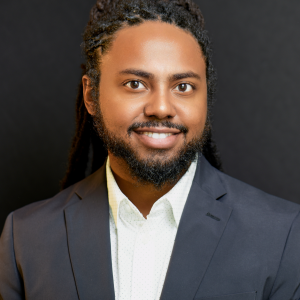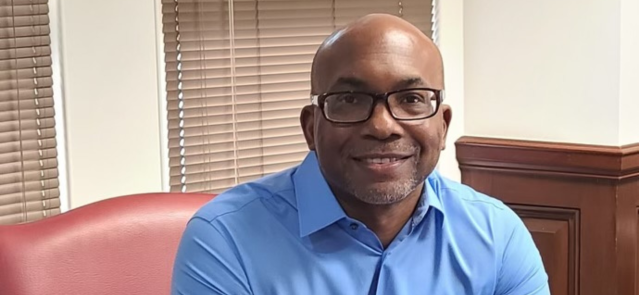Stay ahead of the curve as a political insider with deep policy analysis, daily briefings and policy-shaping tools.
Request a DemoCareSource’s Jason Bearden on Medicaid, value-based care and how he spends his spare time
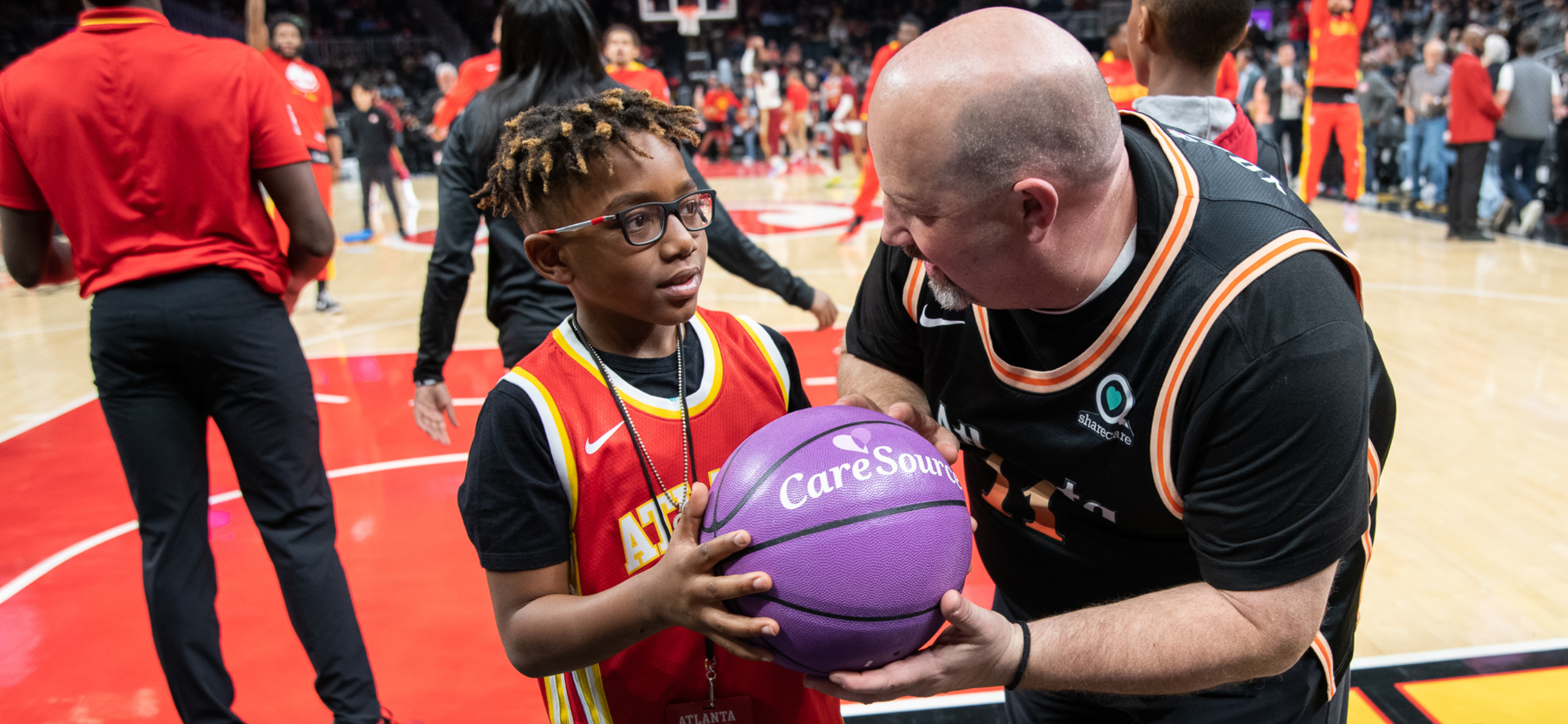
Jason Bearden on the court at CareSource night at the Atlanta Hawks Game. (Credit: CareSource)
Jason Bearden is not only a leader in the health care industry in Georgia, he also has a proven record of benevolence to the Atlanta community he calls home.
Bearden is deeply rooted in Georgia. He’s a graduate of both Georgia Tech and Georgia State University.
When he’s not immersed in his executive duties as president of CareSource’s Georgia market, Bearden is helping to tackle homelessness in Atlanta as a board member of Partners for HOME, or is involved in his kids’ sports games in Atlanta.
Bearden hasn’t forgotten about his core value of serving the public. And he strives to continue to build CareSource’s Medicaid managed care program that many low-income families and individuals rely on to meet their health care needs. “My passion is about people, it’s about relationships, it’s about life change,” he told State Affairs. “And that’s really why I am at CareSource.
“You’ll hear us talk about health care with heart. And it’s all about the heart and helping people achieve their hopes, dreams, goals and aspirations. That’s why I’m here. I’m the market president for CareSource Georgia, which has a lot packed in it, but it ultimately comes down to the people we serve. Everybody needs a little leg up from time to time and that’s what we do.”
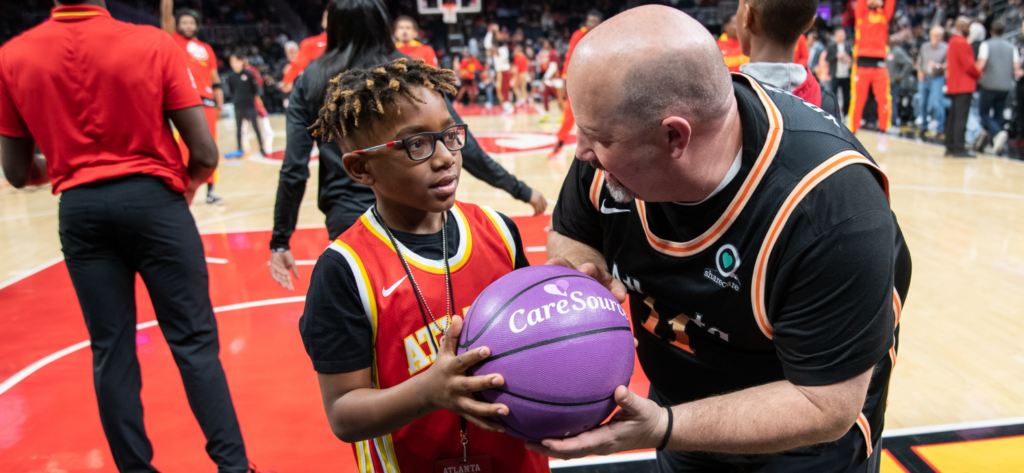
CareSource serves more than 2 million members in several states. The nonprofit is one of the state’s three Medicaid Managed Plans that have more than 500,000 members, Bearden said. (The other two are Amerigroup Community Care and the Peach State Health Plan.) So how do these managed health care plans help Georgians as they navigate major changes to Medicaid eligibility in Georgia?
Many Georgians who rely on health coverage through Medicaid for a range of services have been faced with potential cuts because of the process of redetermining eligibility. If the state determines a recipient is ineligible, they could lose their Medicaid coverage. Both programs provided continuous coverage through the public health emergency due to COVID-19 — but that declaration has ended.
State Affairs caught up with Jason Bearden to talk about how the Medicaid program is helping residents, the impact of the Medicaid “unwinding” process on recipients, the new report on Value Based Care (VBC) and more about his personal life.
Q. Tell us more about CareSource and its Value Based Care program.
A. I think value-based care across the country has the potential to be transformational. [At]CareSource Georgia, we serve almost half a million Medicaid individuals. And it’s our goal to plug them in and incentivize them along with our providers to get preventive care that works upstream; more preventive [care] and less reactive.
Q. Can you elaborate on the findings in the new report on the VBC program?
A. It’s pretty remarkable. Over-year growth, in the last year that we were able to measure, is showing our members enrolled in value-based care across the state have had significant outcomes, which in turn reduces or eliminates out-of-pocket expenses for those members and mitigates Medicaid program expenditures for the state. … More than 80% of those half a million people now enrolled in the value-based care, we’ve seen significant leaps.
Some of the successes are really six key focus measures that we established with the Georgia Department of Community Health that we’ve seen significant gains on year-over-year and from 2021 to 2022. The top six: breast cancer screenings, we’ve seen almost a 4% increase of breast cancer screenings; controlling blood pressure, over an 8% increase in folks being able to maintain and control their blood pressure at a reasonable level; an increase of almost 7% in childhood immunizations; prenatal care we’ve seen grow over 3% per year; and then really important in the southern states, and in Georgia in particular, that prenatal and postpartum care really expanding through value-based care on the preventive end. The postpartum care is growing almost 9% year over year. So those are really important around maternal child health and ensuring we have the outcomes we all want. And [the outcomes] we expect for our moms and our babies and our kids when it comes to even the early life childhood well visits. So those are some of the key metrics that we’ve found really interesting.
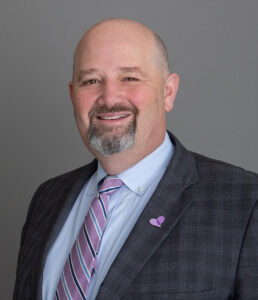
Q. What do the findings in the report mean for the Medicaid members of CareSource?
A. When you have significant increases in those areas, like well-checks, completions of vaccination schedules, first year of life monitoring, and other preventative health care, it really helps to stave off and prevent a lot of illnesses because we have early detection, diagnosis, where we can catch more serious diseases in earlier stages and intervene. That certainly leads to overall better wellness, better outcomes and better quality of life. So, you get that prevention and it leads to just better quality of life.
Q. The Medicaid “unwinding” process required the state to redetermine eligibility for Medicaid recipients in Georgia. How is the company’s managed care plan helping to ensure qualified Medicaid members don’t lose coverage?
A. It starts first with access and coverage. You can’t deliver quality health care without first having access. Our Medicaid program covers almost over 2.7 million Georgians and some projections suggest maybe as many as 20% will lose eligibility. That’s more than half a million Georgians. It’s important that we make sure people are armed with the information because information is really the most vital piece around making sure key, pertinent demographic information is up to date.
So, what we’re doing is certainly getting literature out to our members. We’re partnering with hospitals and physician practices, embedding in those places, when individuals come in, we have tables set up, we can educate them. And what the message is, ‘Hey, make sure you update and keep your information current and up to date.’ …Hopefully we’re gonna be working a little bit more closely with individuals on the tactical side and how to reenroll and the administrative process, because that can be cumbersome in and of itself.
Q. What are you, Jason Bearden, doing when not helping your members with health care services?
A. Family, work-life balance is important. So, I got three kids and spend time with family. But I think community involvement, giving back to the community is important. So, some of my free time that I’m passionate about is working on the board of Partners for HOME here in Atlanta. And it is the most dynamic board to eliminate homelessness in the city. I think we’re one of the most innovative cities in the country in Atlanta in eradicating homelessness, and so that’s a great board. So that’s a big part of who I am and giving back while working on different boards. I’m excited about that. But on the more personal front, you’re not gonna find me on a boat or on the golf course and stuff like that. It’s at the ball field. My kids are all into ball. So, when they’re playing, that’s what we do. That’s the hobby for now, when they get a little older, we’ll figure out what’s next.
Read more on Medicaid unwinding and health care in Georgia:
Issac Morgan is State Affairs newsletter editor. Contact him on Twitter @issacmorgan12 or at [email protected].
Twitter @StateAffairsGA
Facebook @stateaffairsUS
Instagram@stateaffairsGA
LinkedIn @stateaffairs
Newly minted Senate Minority Leader Harold Jones II: ‘I’m not the typical back-slapping politician’
Nearly 10 years into legislative life, Sen. Harold Jones II wouldn’t change anything about the experience. “I love every minute of it. Even when I hate it, I love it,” the 55-year-old Augusta Democrat told State Affairs. Come January, Jones will add another role to his legislative duties: Senate minority leader, a job held for …
Gov. Kemp calls on state agencies to be fiscally restrained amid record $16.5B surplus
The Gist Gov. Brian Kemp asked the state’s 51 government agencies for continued fiscal restraint when drafting their amended fiscal year 2025 and 2026 budgets. Most agencies adhered to his request even as the state’s general fund surplus hit a record $16.5 billion last month. Forty-five agencies, excluding state courts, followed the governor’s instructions to …
Georgia defies bomb threats as election chief declares a “free, fair and fast” vote amid record turnout
ATLANTA – Despite dealing with over 60 bomb threats, Georgia’s election chief said Tuesday the state’s general election went smoothly. Georgia had a record turnout with nearly 5.3 million people voting, Secretary of State Brad Raffensperger told reporters. Election officials in the state’s 159 counties have until 5 p.m. to certify votes. “We had a …
In the (state)house: Meet the newest members of the Georgia legislature
When lawmakers reconvene at the state Capitol on Jan. 13, there’ll be a cadre of new faces in the 236-member Georgia General Assembly, one of the nation’s largest state legislatures. All 236 statehouse seats were up for election this year. Most candidates ran unopposed. Incumbents in contested races easily kept their seats, with the exception …
